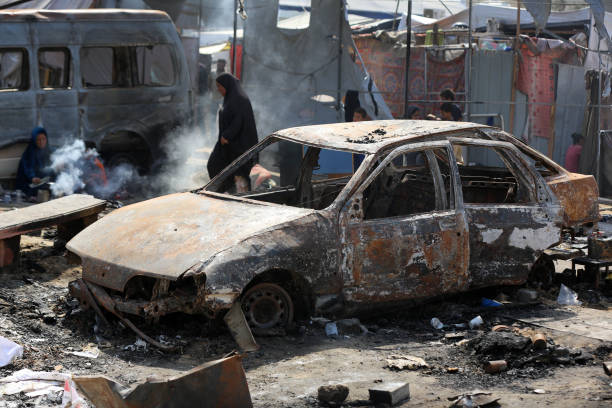The recent release of three Israeli hostages—Eli Sharabi, Or Levy, and Ohad Ben Ami—after 16 months in Hamas captivity has intensified concerns about the condition of those still held. The images of the men, visibly malnourished and frail, have shocked the public. However, Israeli officials state they had long been aware that many remaining hostages were in poor health, with fears that conditions could be even worse for those yet to be freed.
According to intelligence reports, male hostages, particularly soldiers, have faced harsher treatment than female captives. Officials believe men have been given less food and subjected to more extreme confinement conditions. Testimonies from released hostages and their families confirm these fears. Some reported being kept in chains, suffering from severe malnutrition, and enduring psychological torment.
Michael Levy, brother of Or Levy, described the emotional impact of seeing his brother again after more than a year in captivity. “He wasn’t the same person who left home in October 2023. He was hungry, barefoot, and living in constant fear that each day might be his last,” Michael said.
The family of 24-year-old hostage Alon Ohel also spoke about his suffering. His mother, Idit Ohel, revealed in a recent interview that Alon had been bound in chains for over a year, receiving barely enough food to survive. “He has shrapnel wounds in his eye, shoulder, and arm. He lived on just one piece of pita bread a day,” she shared, highlighting the inhumane conditions in which her son was held.
Another freed hostage, Ohad Ben Ami, endured what his daughter described as “hell” during his captivity. At a press conference, Ella Ben Ami shared how unprepared she was for the sight of her father on the Hamas stage in Gaza. “I thought I would be strong, but I fell to the ground and screamed,” she said, overwhelmed by his frail appearance.
These harrowing accounts have only deepened Israel’s fear for the wellbeing of the remaining hostages. Further escalating tensions, Hamas recently postponed the next scheduled hostage release, claiming Israel had violated the terms of their ceasefire agreement. This delay has left many families in distress, uncertain about the fate of their loved ones still trapped in Gaza.
Meanwhile, Israeli military officials confirmed that Shlomo Mantzur, 85, one of the hostages taken during the October 7 attack, had been killed. His body remains in Gaza, and Israeli authorities confirmed his death through intelligence assessments. His family was notified after thorough verification by the Israeli military, health ministry, and police.
As negotiations for further releases continue, Israeli officials brace for more grim discoveries about the conditions hostages have endured. With Hamas delaying the process and reports suggesting worsening treatment, the Israeli government remains deeply concerned about those still in captivity.




